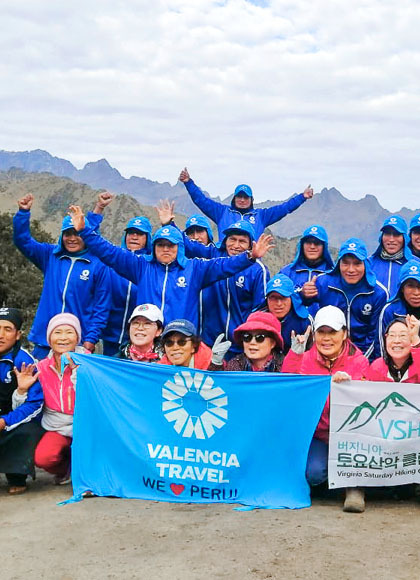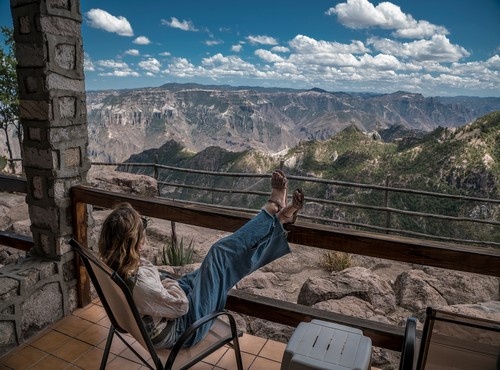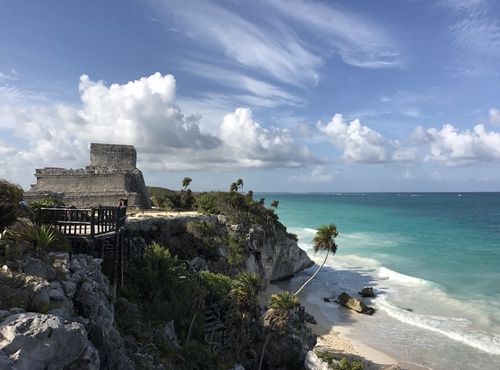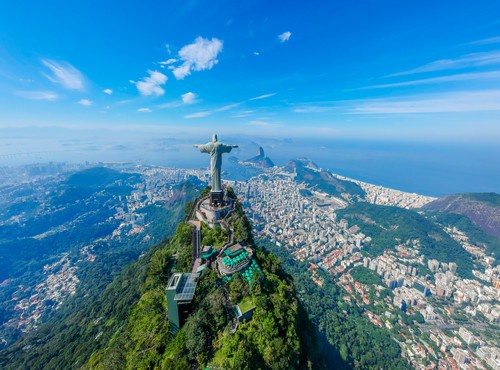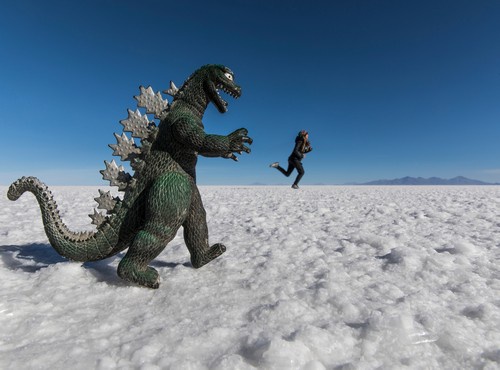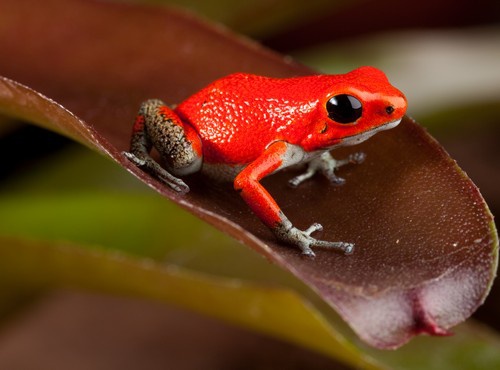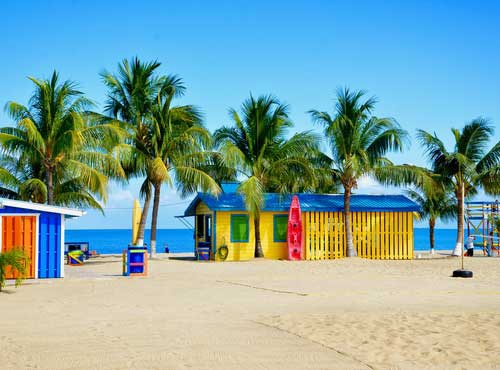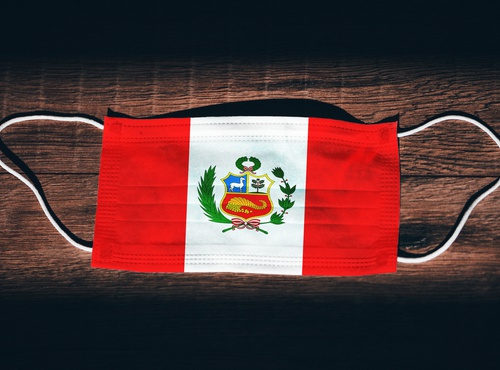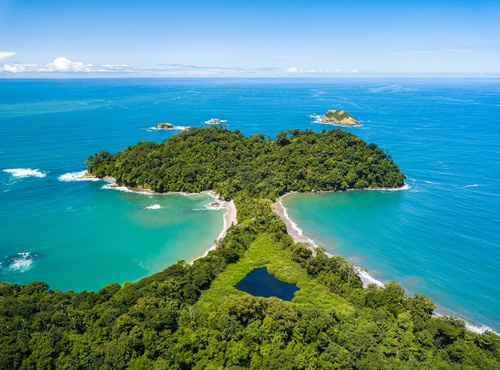
Written by:undefined undefined
Published: 26-04-2022
In general, you can consider Bolivia to be somewhat safe, however it does have high levels of petty crime and there is a risk of violent crime too in the bigger cities, but don´t let this put you off! As is the case in many South American countries long as you follow some of the basic travel rules and pack your travel savvy with you, then your visit to Bolivia should be trouble-free!
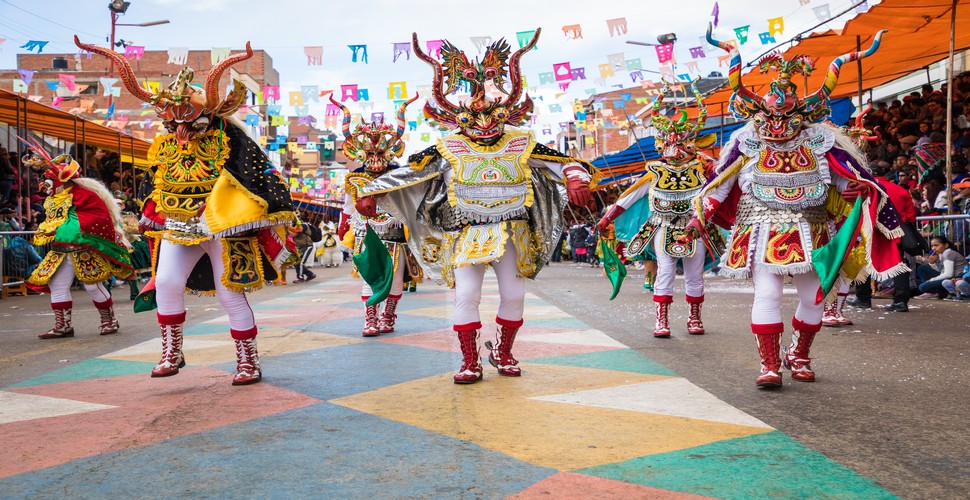
Carnaval time
On a world scale, Bolivia ranks at around 50% so is found right in the middle of the safety scale which is about the same as the USA. With the lowest economy in South America, there are associated risks such as pickpocketing and theft in the Bolivia and bag snatching is not unheard of in the bigger cities. Always keep an eye on your bag keep hold of it at all times. Leave valuables, your passport, and any other important documents locked safely in your hotel room safe, and if you must carry them with you, then keep them under your clothes or get an anti-theft bag. It’s better to carry a photocopy of your passport on your person and also never keep all your money in one place.
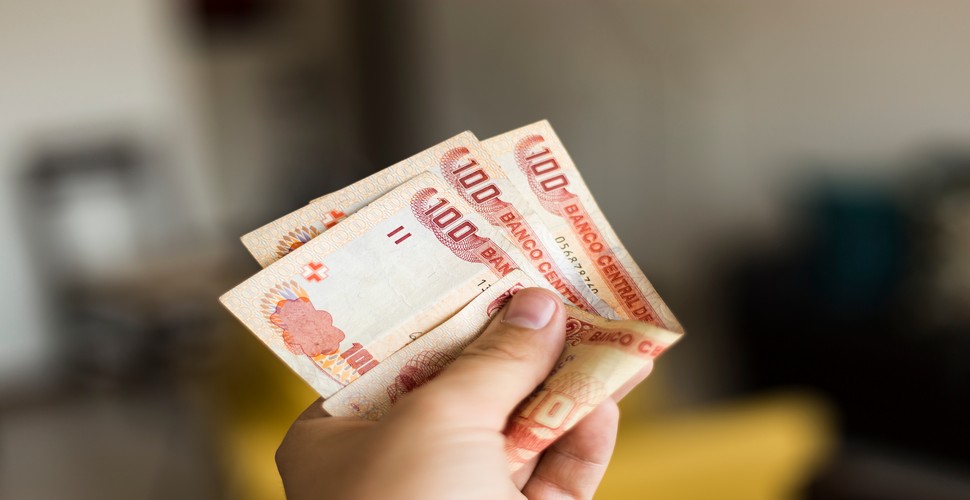
Bolivian currency
Bolivia is prone to floods and landslides. The rainy season is from November to March, with intense, heavy rainfall, especially in the Andean regions. In December 2021, heavy rains and flooding killed at least 12 people in La Paz. During the rainy season, roads can be closed off for a few days at a time. If you choose to travel in rainy season, we recommend you to monitor the weather situation frequently and avoid trekking in mountainous regions. Mountain climbing, a popular activity in Bolivia, is usually off-limits between the wettest months from January to March.
There are also the risks of demonstrations and protests in the Bolivia. If you see a big crowd or hear of a demonstration it is best to avoid these areas if possible. These kinds of gatherings may become violent and will definitely cause travel delays.
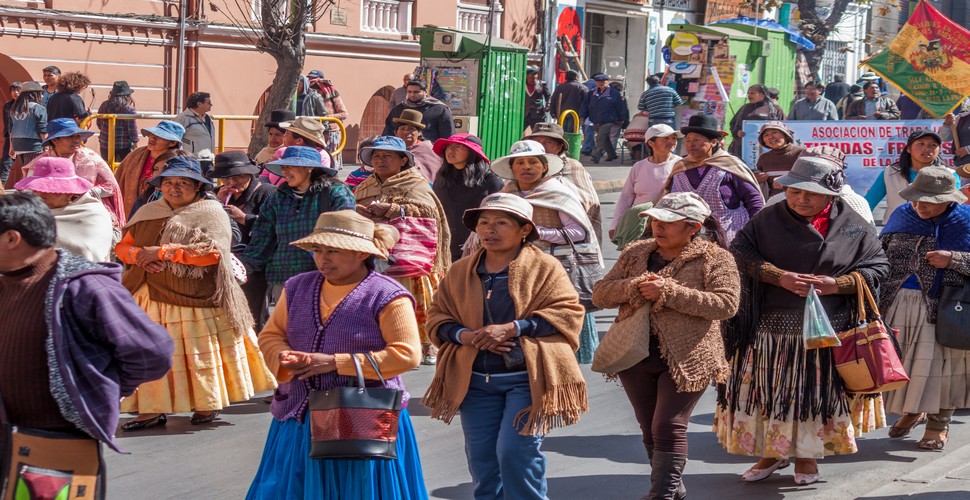
Protest in La Paz
Serious crime in Bolivia
You need to remain vigilant at all times when traveling through Bolivia. Serious crimes do affect foreigners and occasionally tourists are sought out as victims. There is an increasing number of taxi robberies, particularly in La Paz and Santa Cruz. You should always take registered taxis, which are identifiable by a display sticker on their windscreen or window. Make sure to note down the taxi registration number AND telephone number before you take a taxi.
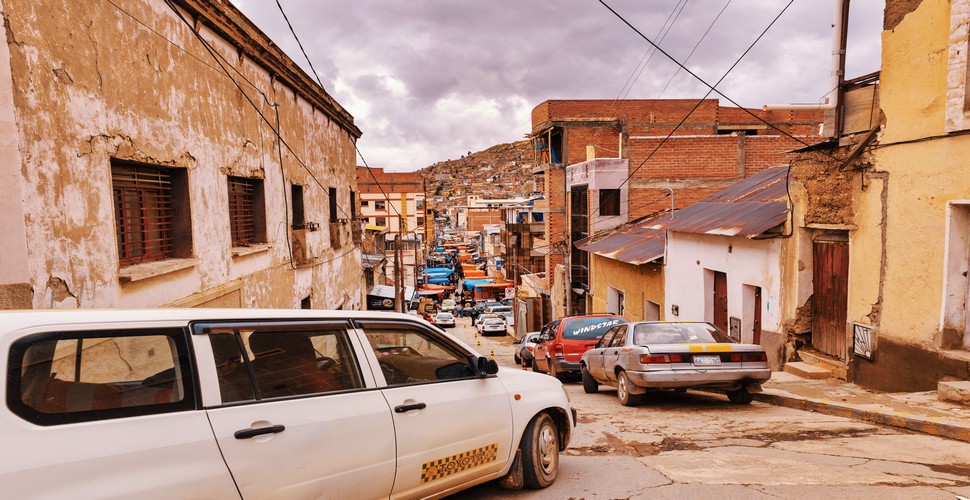
Taxi in Oruro
There have been reports of delinquents impersonate police officers in collaboration with fake taxi drivers in La Paz. Usually, the “police officer” approaches you asking for your passport and other information, the victim is then convinced to get into a “taxi”, presumably to go to the police station, where they are robbed and taken to ATMs to withdraw all their money. These criminals are highly persuasive, even using false police ID cards and fake police stations to lure victims!
Express kidnappings are a general risk. Tourists in Bolivia are selected at random and kidnapped for several days while the criminals use their stolen bank cards. The overland entry points into Bolivia, via Argentina, Chile, and Peru, are places where foreigners are particularly at risk. Try to use direct buses when possible, and take extra care when you arrive.
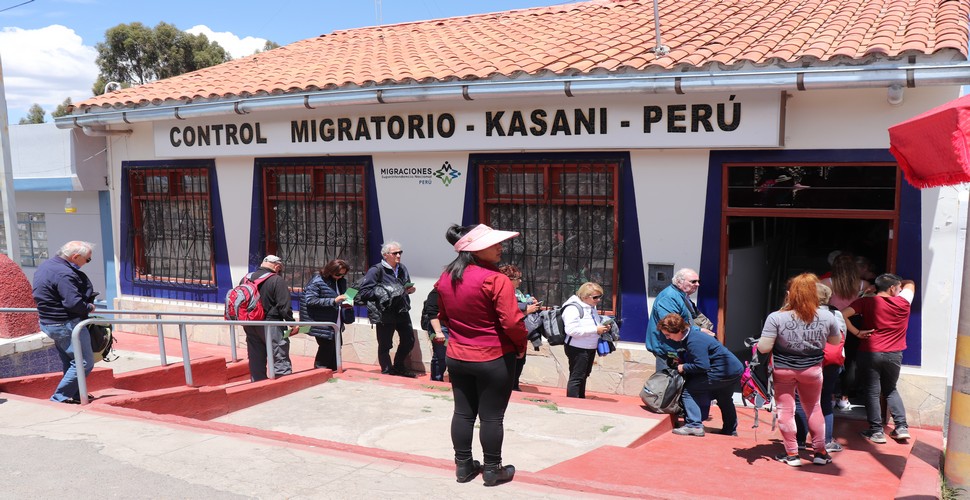
Immigrations at the land border with Peru
In La Paz, kidnappings are most likely to happen downtown, as well as in Plaza del Estudiante, Plaza San Francisco, Plaza Isabel La Catolica, Plaza Abaroa, Sopocachi, and the Plaza Humboldt. Tourists should stay away from Coronilla Hill in Cochabamba (near the main bus terminal). This area is frequented by alcoholics and drugs addicts, and even the locals avoid it.
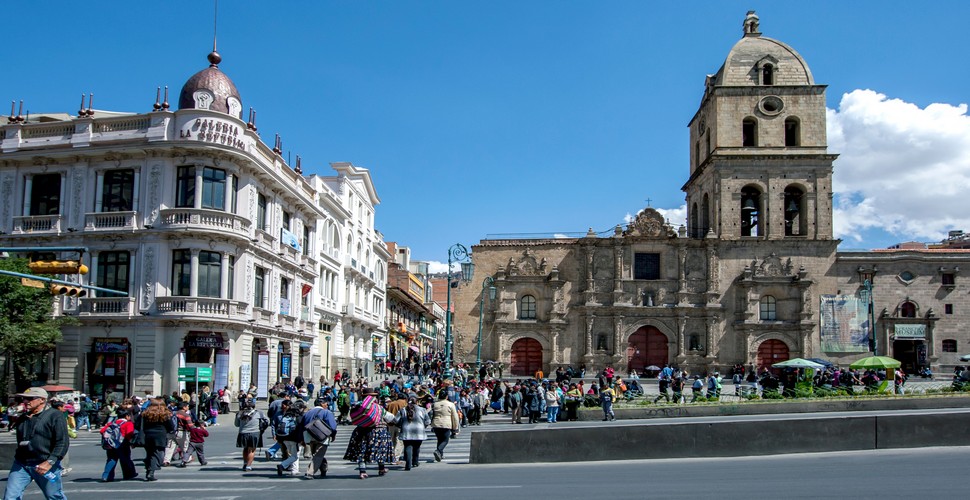
La Paz Plaza San Francisco
Common Scams in Bolivia
There are a few common scams in Bolivia, including the “fake police officer. Here are some of the most common scams you should be aware of:
The “fake police” scam – Yes, we’ve got another fake police scam to watch out for. This one is very similar to the one we described earlier, in which an offender dresses up and impersonates a police officer. These “officers” will target foreign tourists and “arrest” them on suspicion of drug trafficking. They will demand payment and your ID, then, once you have handed it over, they will quickly disappear with it. In Bolivia, police officers aren’t allowed to search you without a warrant. If someone does approaches you, ask to see their warrant before handing anything over and then immediately contact your embassy.
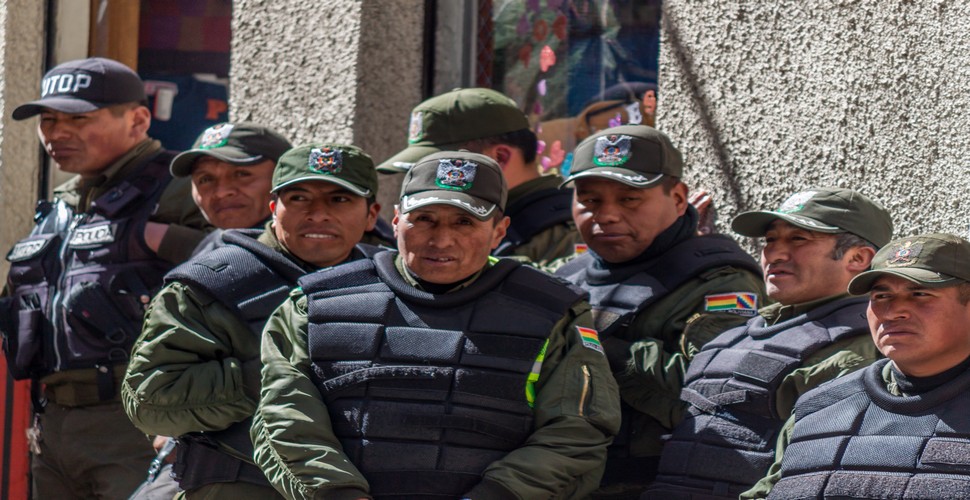
Bolivian Police
The “spill” scam – This scam gets points for simplicity. It works by someone “accidentally” spilling something on you. Another person will approach to help, offering to clean you up, and while doing this, they will steal your things using expert techniques. If someone does spill something on you, clean yourself up, refuse any assistance and keep walking.
The “fake tourist” scam – In this scenario, another friendly “tourist” will approach you and try to be friends. Then, they might invite you to go to a friend’s house. If this happens, do not go and politely decline find yourself being kidnapped and robbed.
The “fake tourist/police” scam. Here is another fake police scam for you. In this scam, a friendly “tourist” will try to befriend you, they will then be accused of drug possession by a uniformed “officer”. Both of you will get taken to a fake police station in Bolivia https://vaexpeditions.com/package/9-day-luxury-boliviawhere your belongings will be “confiscated”.
By simply knowing about these scams, you can reduce your chances of becoming a victim! Be super wary of anyone who approaches you and politely decline any invitations. Be firm in asking any officers to see a warrant before handing over any important documents or allowing them to search you. If they become aggressive, don’t be afraid to make a scene, draw attention to others or kick up a fuss!
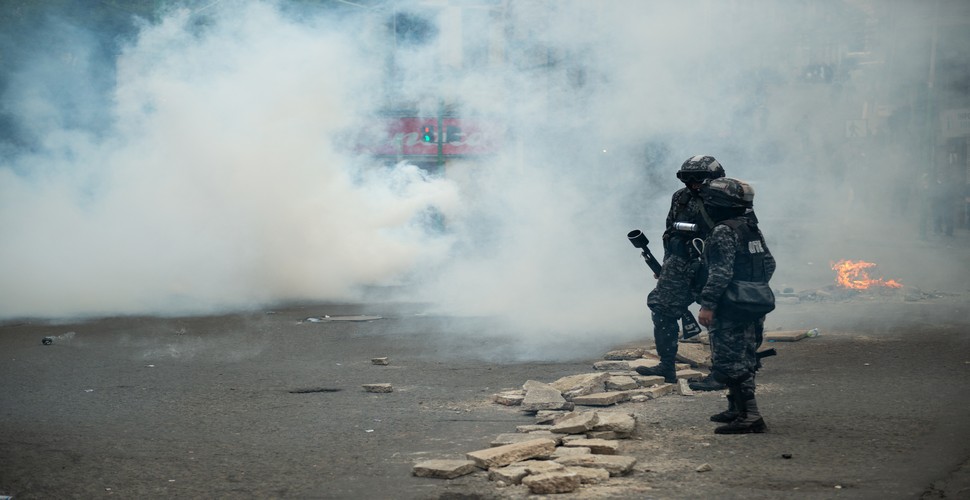
Demonstration with tear gas
Is Bolivia safe for female solo travellers?
Lots of women travel to Bolivia solo and nothing bad happens to them. However, other women have reported serious incidents such as rape and sexual assault. You will need to take the normal precautions that you would normally take while travelling solo, as in all of South America and in fact the world!
Be especially careful at night and avoid unlit streets, deserted areas, and if possible, walking alone. If you decide to go out on the town ina big city like La Paz, be extra alert in clubs, making sure to keep your drink with you at all times and only accepting drinks you’ve seen being made with your own eyes.
Be wary of any strangers who might approach you, and if you can, make friends with some other travellers in your hotel, so you can go out and watch each other’s backs! Always lock your hotel door as soon as you get back.
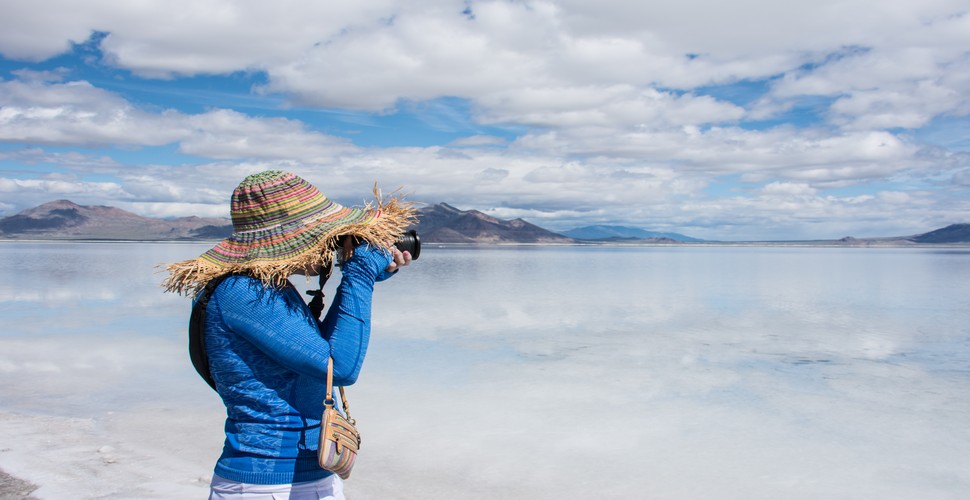
Female traveller in Bolivia
Is public transport in Bolivia safe?
Traveling by bus is by far the best way to get around Bolivia, unfortunately, public transport can be unsafe and unreliable. If you have the budget, splash out the extra cash for “luxury” bus services, as the extra cost will be well worth the extra comfort. As a minimum, you should always travel using well-established public transportation companies.
Always try to take direct bus routes, and if you’re traveling from Copacabana to La Paz, do so during the day. Night travel between these destinations is dangerous. If you’re arriving in La Paz, take care in the Cementerio General area, as there have been reports of kidnappings here.
Breakdowns are really common, and during the rainy season, be prepared for long delays. If you are planning to travel through mountainous regions over the rainy season, there is a risk of landslides. The Bolivian Road Authority website has up-to-date info on the state of the roads, so it’s good to check before you set out.
Bolivia has a tense political climate and groups often make rock blockades as a form of protest. They can happen without warning and can widely disrupt public transport. If you come across a blockade, do not attempt to cross it.
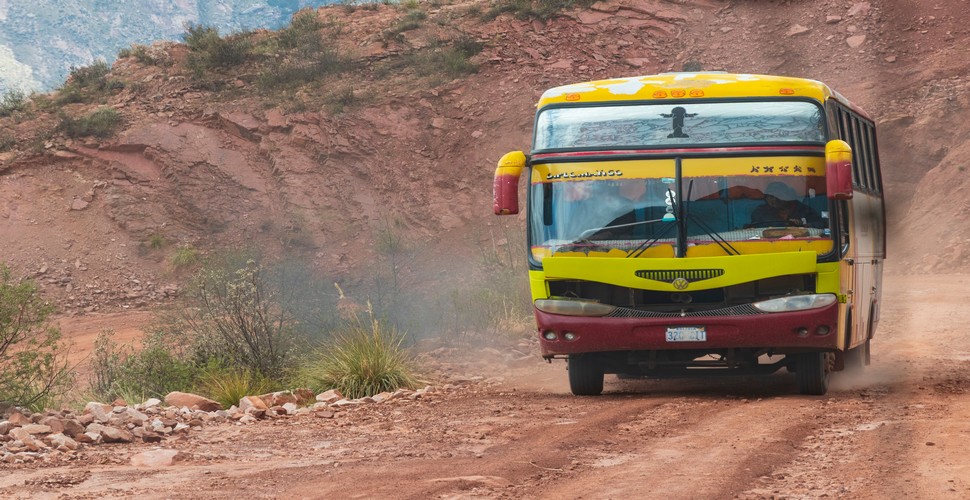
Bolivia Bus
Is tap water in Bolivia safe?
Tap water is NOT safe to drink in Bolivia! Always drink bottled water and use bottled water for brushing your teeth and rinsing your mouth out.
When eating out, try to avoid drinks with ice and steer away from dishes with ingredients that may have been washed in tap water, like fresh salads.
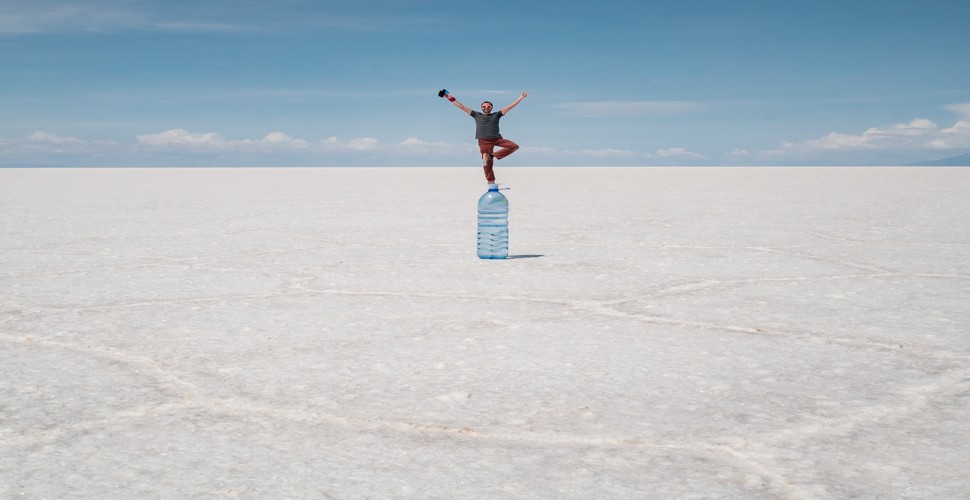
Water bottle on the salt flats
Top tips for staying safe in Bolivia
Don’t stay out past 4am. There is a law in Bolivia prohibiting the sale of alcohol past 4am so any party you attend is likely to be illegal.
Be vigilant at all times. Always be wary of friendly strangers, don’t walk alone at night, and always keep an eye on your things.
Only use reputable tour companies. Bolivia has loads of tours to visit their absolutely incredible natural sights. It’s best to choose reputable tour companies with good reviews and recommendations.
Stay away from dangerous areas. Several areas in Bolivia are notorious for crime. The obvious solution?? Stay away, especially at night.
Be aware of scams as already mentioned.
Leave your valuables at the hotel. With such a high level of pickpocketing and theft, bringing your valuables out just isn’t worth it. This includes your passport and a photocopy of your passport is sufficient.
Always take registered taxis and well-known bus companies in Bolivia. A lot of crime happens in fake taxis. Always take the time to double-check if a taxi is authorized before getting in.
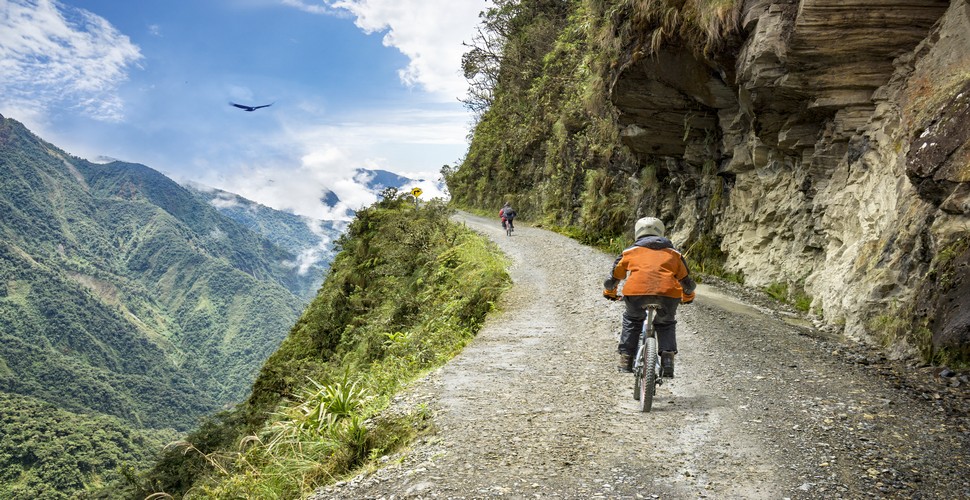
Worlds mosts dangerous road
In Conclusion - Is Bolivia safe?
So, Bolivia isn’t exactly the safest place in South America, but this has not affected the number of visitors the country receives. Most visits are trouble-free, serious crimes DO sometimes affect tourists so you should always be vigilant. Knowing the local scams and which areas not to go to will help to keep you safe.
Lots of solo female travellers explore the country without any issues, but serious incidents have been reported by a few travellers. The key to staying safe is exercising the normal precautions that you would anywhere and being extra careful of strangers.
Bolivia is an awe-inspiring country, and despite the dangers, it is well worth a trip, bearing in mind the necessary precautions.
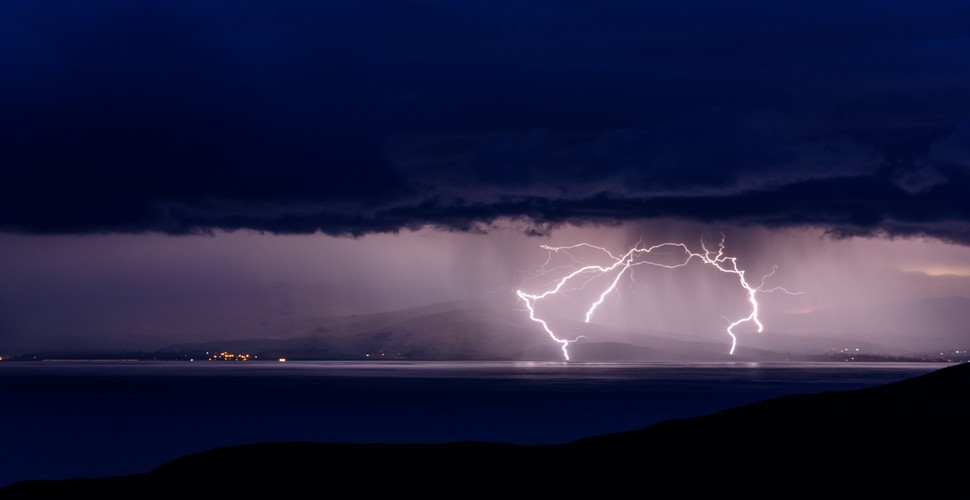
Thunderstorm over the salt flats






